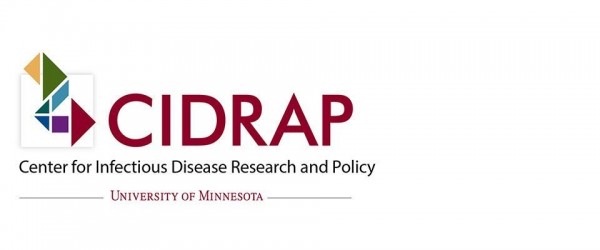Editor's Note A new collaborative initiative called the Healthcare Infection Prevention Advisory Group (HIPAG) has been created by the Association for Professionals in Infection Control and Epidemiology (APIC) and the Society for Healthcare Epidemiology of America (SHEA). It will address infection prevention priorities of national importance, according to a December…
Editor's Note A novel preoperative vaccine using a biodegradable scaffold system has proved effective in a mouse model to prevent infection associated with orthopedic devices. The investigators noted this vaccine approach could help prevent surgical site infection in patients undergoing joint replacement surgery, according to a December 1 news release…
Editor's Note To help teams develop and grow the confidence to demonstrate compliance with infection prevention practices during survey, focus on building practice-based consistency, an infection control consultant recently advised in an article published in the November/December issue of Healthcare Hygiene Magazine. The expert discussed infection control habits that healthcare…
Editor's Note Ethiopia has confirmed an outbreak of Marburg virus disease (MVD), a severe viral hemorrhagic illness related to Ebola. Infection prevention teams are encouraged to establish or revisit their facility’s MVD readiness plans now, according to a November 19 email communication from APIC. This MVD outbreak has involved 9…
Editor's Note Seasonal influenza activity remains low nationally but is increasing, primarily among children, according to the CDC weekly influenza report published November 14. The CDC reported the percent positivity for influenza and the percentage of emergency department visits for influenza among pediatric age groups increased for the week ending…

Editor's Note In an opinion piece published by STAT on October 30, authors Judy Stone, MD, retired infectious disease physician, medical journalist, and author, and Judith Feinberg, MD, professor of medicine/infectious disease and professor of behavioral medicine and psychiatry at the West Virginia University School of Medicine, argue that new…

Editor's Note Hospitals that succeed in surveys are those that “hardwire safety so you’re not ramping up and down,” said John R. Rosing, MHA, FACHE, executive vice president and principal of Patton Healthcare Consulting. Speaking at the OR Manager Conference, Rosing reminded perioperative leaders, “If we’re really about providing quality…

Editor's Note Fifteen states and territories are banding together to rebuild the nation’s weakened public health infrastructure as federal support falters, CIDRAP October 17 reports from October 15 Wall Street Journal coverage. According to the news, Democratic governors have launched the Governors Public Health Alliance, a nonpartisan, nonprofit effort to…

Editor's Note The Food and Drug Administration (FDA) has announced three new recalls between October 14 and 16 that may affect OR inventory and perioperative workflows across multiple service lines. Each recall targets a commonly used product in surgical or imaging settings, prompting leaders to review supplies and coordinate with…

Editor's Note Sweeping layoffs at the Centers for Disease Control and Prevention (CDC) have gutted the agency’s ability to track overdoses, injuries, and violent deaths, Axios October 15 reports. The National Center for Injury Prevention and Control, once a cornerstone of public health surveillance, now operates with roughly one-third of…